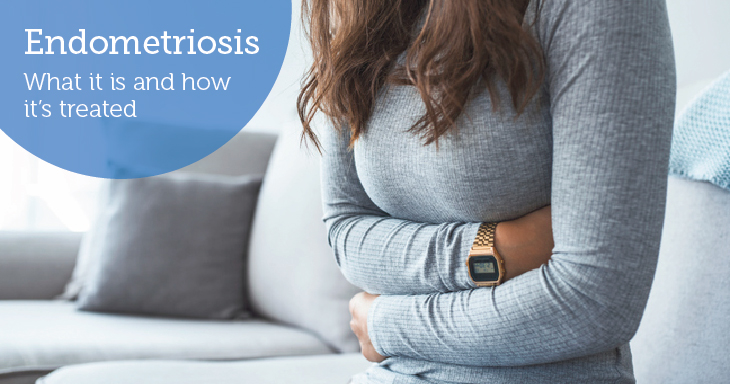The endometrium — the lining of the uterus — has a valuable purpose: It gives a fetus a healthy place to grow. When that kind of tissue grows outside the uterus, though, it causes problems. Those problems can be extremely painful and threatening to fertility, and it’s important to diagnose and treat endometriosis promptly.
What is endometriosis?
Endometriosis occurs when tissue much like the endometrium grows in places other than the inside of the uterus — most often the ovaries, fallopian tubes, or tissue lining the pelvis. Like regular endometrial tissue, endometriosis tissue grows and breaks down with the menstrual cycle. But while endometrial tissue can safely exit the body, this unwanted tissue is trapped, where it can cause serious damage. It can cause painful cysts, irritation, scars, and adhesions that make the pelvic tissues and organs stick to each other.
Endometriosis can also affect fertility — between one-third and one-half of women with endometriosis have trouble getting pregnant. But that doesn’t mean a person with endometriosis will never have a successful pregnancy. In fact, doctors sometimes recommend that patients with endometriosis have children sooner rather than later, since the condition can get worse over time.
What causes endometriosis?
It’s not entirely clear what causes endometriosis. Most theories link it to your hormones and menstrual cycle, and doctors have identified certain risk factors. You may be at higher risk for endometriosis if you have:
- Never given birth
- Started your period at a young age
- Started menopause at an older age
- A short menstrual cycle (less than 27 days) and/or longer periods (longer than seven days)
- Higher levels of estrogen
- A low BMI
- One or more close relatives with endometriosis
- Abnormalities in your reproductive tract or any condition that prevents your menstrual flow from leaving your body
What are the symptoms of endometriosis? How can you diagnose it?
The main, most common (although not universal) symptom of endometriosis is pelvic pain. Although the pain usually comes along with your period, it may be far worse than any normal menstrual pain you’ve experienced. It might start earlier and last longer than your period and may come with lower back and abdominal pain.
Other symptoms could include:
- Pain during intercourse
- Pain when you urinate or pass a bowel movement
- Excessive menstrual bleeding, or bleeding between periods
- Infertility
- Other symptoms including fatigue, diarrhea, constipation, bloating, or nausea, especially around the time of your period
Endometriosis usually develops several years after the start of menstruation and may go away completely after menopause (unless you take estrogen). The symptoms can improve, temporarily, during pregnancy.
To diagnose endometriosis, your doctor will talk with you to understand your symptoms and where and when you’re feeling pain. Then they’ll do a physical exam using one (or more) of several methods.
- Pelvic exam
- Ultrasound or MRI imaging
- Laparoscopy, where a surgeon makes a tiny incision near your navel and uses a tiny instrument to look at your pelvic organs for signs of endometriosis tissue
How is endometriosis treated?
Treatment for endometriosis can involve medication, surgery, or both. Your doctor will recommend treatment based on your symptoms, the results of your exam, and whether or not you plan to get pregnant in the future.
Medication options include:
- Over-the-counter pain medication to help with menstrual pain
- Hormone therapy (if you aren’t planning to get pregnant)
Surgical options include:
- Conservative surgery to remove any endometriosis tissue, cysts, and adhesions while leaving your ovaries and uterus intact
- Hysterectomy and oophorectomy, removing the uterus and ovaries, if absolutely necessary
If you’re hoping to get pregnant, of course, your doctor will take that into consideration as they develop a treatment plan. Your plan might involve fertility treatments to help you conceive if your endometriosis is preventing it.
Alabama Fertility Services is here to help.
Endometriosis is painful, and it can be a scary diagnosis. But it’s treatable, and it doesn’t mean your hopes for a family are over. Alabama Fertility Specialists wants to help you start or grow your family. Contact us to learn more about conditions like endometriosis and the options we offer to give you the fertility care you need.
